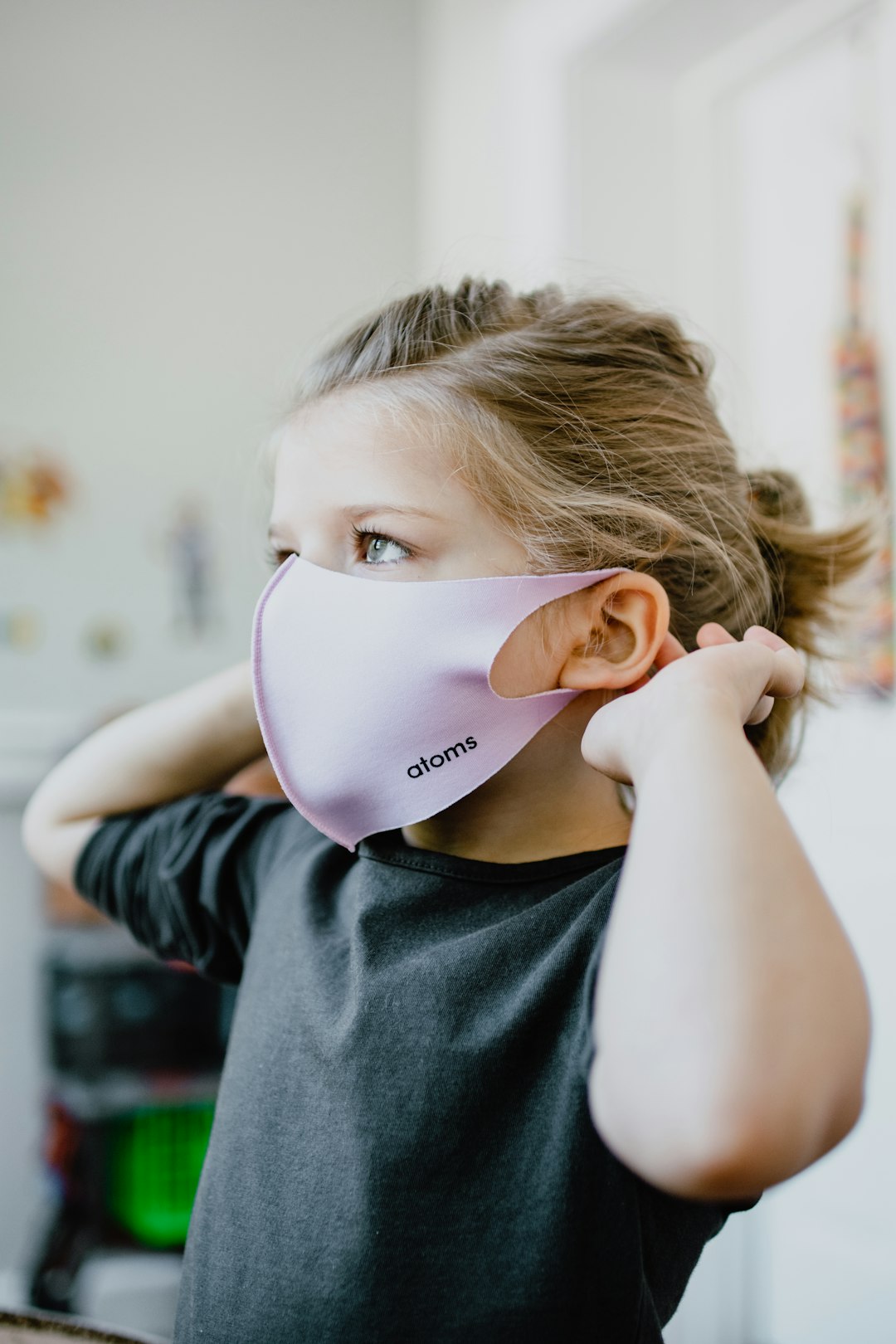Dental appointments are a part of every child’s life, but for many families, even routine cleanings can bring a wave of stress. Dental anxiety in children is common, with studies showing that up to 20% of kids experience significant fear around visiting the dentist. This anxiety can range from mild nervousness to a full-blown panic, making dental care a real challenge—both for the child and for concerned parents.
If your child dreads sitting in the dentist’s chair or you’ve struggled to get through an appointment without tears, you’re not alone. Understanding the roots of dental fear—and having a plan for supporting your child—can transform these visits from battles into opportunities for growth and confidence. In this in-depth guide, we’ll answer the questions parents are searching for: Why do kids fear the dentist? What can you do before, during, and after appointments? And how can you help your child build positive long-term dental habits—even if they’re anxious?
Why Are Children Afraid of the Dentist?
Dental anxiety doesn’t arise out of nowhere. Understanding where fear comes from is an important first step to helping your child overcome it.
- Fear of the Unknown: For many children, the dental office is filled with unfamiliar sights, sounds, and sensations.
- Negative Past Experiences: A previous painful or uncomfortable visit, or hearing about one from a sibling or friend, can set a pattern of anxiety.
- Sensory Sensitivity: The bright lights, buzzing tools, and crowded feeling in the mouth can overwhelm sensitive children.
- Lack of Control: Sitting still while strangers work in their mouth can make some kids feel vulnerable and powerless.
- Parental Anxiety: Kids pick up on their parents’ stress. If caregivers are nervous about the dentist, children often sense it and mimic that reaction.
Recognizing Dental Anxiety: Signs to Watch For
Some children talk openly about their fears, but others might show their stress in less obvious ways. Watch for these common signs:
- Complaints of stomach aches or headaches before appointments
- Tantrums, crying, or plea-bargaining to avoid visits
- Trouble sleeping the night before a dental appointment
- Clinginess or withdrawal at the office
- Refusing to open their mouth, gagging, or struggling with routine cleanings
By tuning in to your child’s cues, you’ll be better equipped to provide the right support and address their unique concerns.
Before the Appointment: Setting the Stage for Success
Preparation is key when it comes to reducing dental anxiety. Here are evidence-based tips for laying the groundwork for a positive experience:
1. Choose the Right Dentist
A pediatric dentist specializes in working with children and has experience handling anxiety and behavioral needs. Look for an office that:
- Has a child-friendly waiting area and exam rooms
- Welcomes parents to stay during treatment if needed
- Uses clear, age-appropriate explanations for tools and procedures
- Is open to scheduling a “meet and greet” for nervous children—just to explore the space and say hello
2. Practice “Dental Play” at Home
Role-playing dental visits with your child’s favorite stuffed animals or dolls can make the experience more predictable and less scary. Try:
- Taking turns being the “dentist” and the “patient”
- Counting teeth, brushing, and shining a flashlight in their mouth
- Pretending to sit in a chair and listen to silly “buzzing” noises
3. Use Positive Language
Avoid using words that may increase anxiety: “It won’t hurt,” “shot,” or “drill.” Instead, frame the visit as a healthy, important part of growing up. For example:
- “The dentist will help keep your smile healthy and strong.”
- “We’ll count your teeth and make your smile sparkle.”
4. Read Books or Watch Shows About the Dentist
Stories and shows featuring beloved characters facing dental checkups can help normalize the experience. A few popular options include:
- “The Berenstain Bears Visit the Dentist” by Stan & Jan Berenstain
- “Peppa Pig: Dentist Trip”
- “Going to the Dentist” by Anne Civardi
- “Daniel Tiger Visits the Dentist” TV episode
During the Visit: Calming Strategies for Kids and Parents
Once you’re in the dental office, the right strategies can soothe nerves and set the tone for a successful appointment.
1. Arrive Early and Unrushed
Give your child time to get comfortable in the waiting area, explore the space, and meet the staff before the appointment begins.
2. Stay Calm and Positive
Your energy is contagious. Speak softly, maintain your composure, and model relaxation. If you’re nervous, use deep breathing techniques before you enter.
3. Bring Comfort Items
A favorite toy, blanket, or stuffed animal can provide reassurance. Some pediatric dental offices even offer sunglasses or headphones to block out unpleasant stimuli.
4. Use Relaxation and Distraction Techniques
- Deep Breathing: Encourage your child to take slow, deep breaths with you before they sit in the chair.
- Counting or Storytelling: Ask your child to count ceiling tiles, squeeze your hand, or listen to a favorite story on headphones.
- Visualization: Invite them to imagine a happy place, like the playground or their favorite park.
5. Praise and Small Rewards
Celebrate bravery, even in small steps. Tell your child what they did well—”I’m proud of you for being so still,” “Great job opening your mouth!”—and consider a post-visit treat like a sticker or trip to the playground.
Special Considerations: What If the Fear Persists?
While most children’s dental anxiety lessens with positive experiences, some kids continue to struggle—especially if they have sensory sensitivities, developmental differences, or a previous traumatic experience. Consider the following:
- Discuss Your Concerns Openly: Let the dentist know in advance about your child’s fears. Many offices have flexible routines and can adapt to your child’s needs.
- Gradual Exposure: If necessary, schedule multiple short “practice” visits—sometimes just entering the office or sitting in the chair—to build comfort gradually.
- Social Stories: Many occupational therapists or child psychologists can create “social stories”—pictorial guides describing every step of a dental visit—for kids who benefit from visual supports.
- Professional Support: If anxiety is severe, consider consulting with a child psychologist or therapist who specializes in pediatric anxiety.
After the Appointment: Reinforcing a Positive Experience
What you do after the appointment can help make the next visit smoother:
- Talk About the Visit: Recap what went well and what was tough. Reassure your child that it’s okay to have difficult feelings and celebrate their bravery.
- Keep Up At-Home Dental Routines: Daily brushing and flossing help normalize mouth care and reduce the need for invasive dental work.
- Plan the Next Appointment Together: Give your child a sense of control by letting them choose the day or time, or which comfort item to bring next time.
When Anxiety Turns Into Avoidance: What Not to Ignore
It’s normal for kids to feel nervous about the dentist. But skipping dental visits entirely can backfire, leading to more severe dental issues—and even bigger anxieties—in the future. Avoid delaying routine care “until they’re older,” as this can reinforce fear.
Watch for these red flags, when professional help is warranted:
- Extreme distress or panic at the mention of dental care
- Refusing all oral hygiene activities (brushing, flossing, etc.)
- Creating physical symptoms, such as vomiting, before appointments
- Ongoing problems with oral health due to missed care
In these cases, a team approach involving your dentist and a mental health professional can make a transformative difference.
Building Lifelong Healthy Attitudes About Dental Care
How you handle dental anxiety today shapes your child’s relationship with oral health for years to come. Try to:
- Normalize Dental Visits: Treat them just like an annual physical or eye exam, not as something to dread. Avoid using dental appointments as a punishment or consequence.
- Model Good Habits: Let your child see you maintain your own dental hygiene and go to your own appointments with positivity.
- Replace Guilt With Compassion: If your child struggles, avoid shaming. Empathize with their feelings and praise efforts, not perfection.
- Minimize Surprises: Always let your child know what to expect, and prepare them for each step of the visit.
- Empower With Information: As your child grows, teach them why dental care matters and how they can protect their own smile.
Frequently Asked Questions About Dental Anxiety in Kids
How early should I take my child to the dentist?
The American Academy of Pediatric Dentistry recommends a first dental visit by age one, or within six months of the first tooth erupting. Early visits often focus on education, prevention, and familiarizing your child with the dentist.
Is sedation ever necessary for an anxious child?
Some dental procedures require sedation, especially for highly anxious or very young children. Modern pediatric dentists offer many options—from nitrous oxide (laughing gas) to safe, short-acting medications—and will discuss the risks and benefits with you.
How can I help if my child needs a cavity filled or other dental work?
Be honest (without focusing on possible pain), keep explanations simple, and reassure your child that you’ll be with them. Many dentists offer breaks or distractions (like videos or music) during more involved procedures.
My child has special needs. What should I do?
Look for a pediatric dentist with experience supporting children with sensory processing challenges, autism, or other special needs. Share your child’s sensitivities in advance, and ask about flexible accommodations like private rooms or longer appointments.
Resources and Additional Support
- American Academy of Pediatric Dentistry: Parent resources, FAQ, and dentist finder tool
- MouthHealthy (ADA): Tips for kids’ oral health
- CDC Children’s Oral Health: Education and prevention
Conclusion: Moving From Fear to Confidence
Dental anxiety is a challenge, but it doesn’t have to rule the day. With empathy, preparation, and the right support, most kids can learn to approach dental care with calm and confidence. Each positive experience lays another brick in the foundation of lifelong health. If your child is nervous, let them know their feelings are normal and that you’ll work through them together. Your support, patience, and understanding can make all the difference—leading to healthy smiles and far less stress for everyone.
If you’re concerned about your child’s dental anxiety, talk to your pediatrician or seek out a pediatric dentist who can help you create an individualized plan for success. No one likes a trip to the dentist, but with time and support, your child can find their courage and take pride in their healthy smile.




